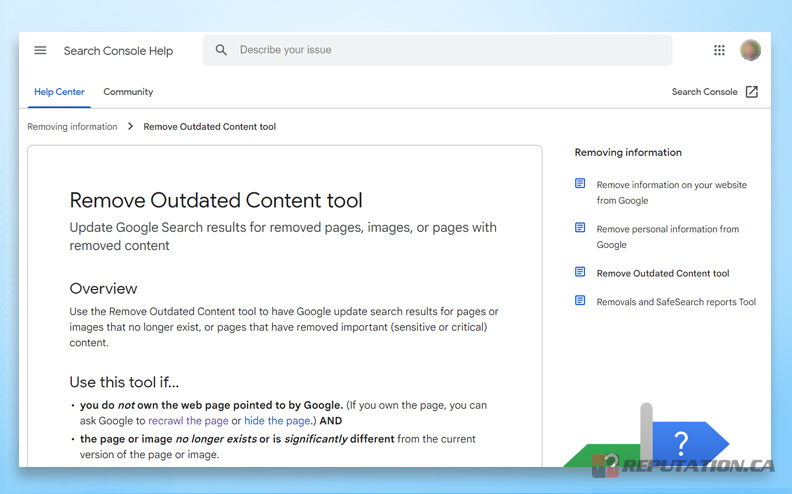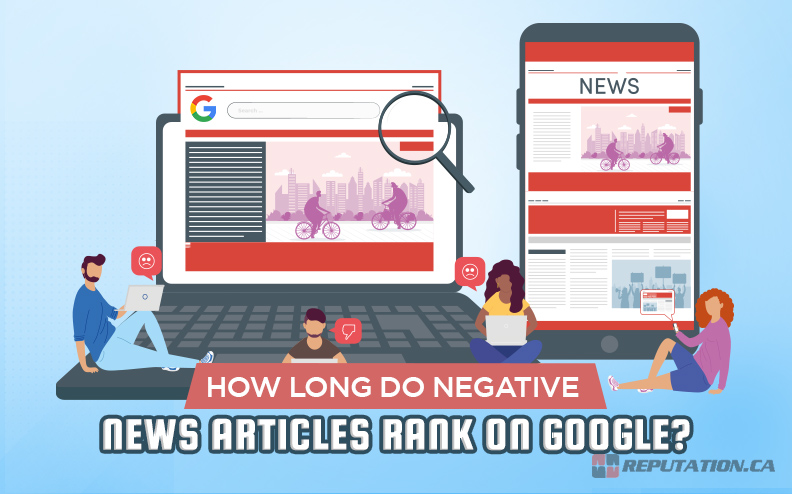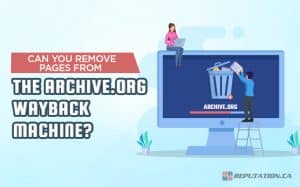Google has become one of the most commonly used tools on the internet, allowing people to rapidly access any information they need. People use the internet to research topics relevant to their needs and curiosity, doing millions of searches daily.
Because of this popularity, Google has worked hard to optimize its search engine to suit its users’ needs. This has led to their creating a highly tuned algorithm to optimize search results. The current incarnation of Google’s algorithm is a highly effective tool that has helped millions of users find the results they were after. Unfortunately, Google’s algorithm can be a double-edged sword for certain groups and individuals in the public eye.
Google’s algorithm is designed to bring the most relevant information to the user by evaluating millions of results. These results are compared, and the information considered most pressing by Google’s standards is presented to the user. This has enabled Google to offer information related to the initial search despite the lack of keywords in the search parameters.
While this helps the users, it also means that any bad press regarding the search’s subject will be front and center for the user’s perusal. This negative press is meant to be informative but can devastate your reputation as it circulates. Negative press can stick to your reputation for a while, especially since negative news can have long lifespans in the press. The question is: how long is that lifespan?
What Does Negative News Do?
There has been a growing trend of individuals and companies being caught doing something controversial or possibly illegal. There is usually significant media coverage when these groups or individuals are caught. Typically, the bigger the incident, the more coverage from notable outlets. For example, a small event with a family-owned business in a small town will not likely receive coverage from CNN or Fox.
Meanwhile, a major issue with a national company will almost always receive coverage from every major news outlet in the country. Additionally, there will be coverage from smaller outlets that exclusively offer online news articles to inform those who do not use mainstream platforms. Several online news platforms specialize in the news for certain industries, like motor vehicles or video games.
The variety of news outlets means any misconduct or controversy you are involved in will be covered at some point. This can devastate your reputation since most people are unwilling to forgive the slightest infractions. This issue has only grown more severe in recent history because of the division in our society. Everything from genuine criminal conduct to affiliating with any political party can cause someone to take issue with you.

The number of people who take exception to your actions and affiliations radically increases when there is major news coverage about you. Negative news also damages your previously loyal consumers’ perception of you and could cost you business. Negative news is one of the biggest sources of reputational damage in modern society, making it a serious threat to businesses that rely on repeat customers.
The negative news articles on Google also allow readers to communicate by allowing them to comment on the event. This exchange is further enhanced by the ability to share these articles on social media platforms to further the spread. As a result, the negative news about you could spread worldwide within 24 hours, and the entirety of your consumer base could turn against you.
Your reprisal will ultimately depend on how bad the infraction is, with loyal consumers being more willing to forgive you if your reputation was favorable until now (unless your infraction was severe enough). Regardless of what the negative news is covering, the main concern is figuring out how long the articles will circulate through Google’s algorithm.
How Does Google’s News Algorithm Work?
Google’s algorithm for search results is extremely complicated insofar as the coding is concerned, but the base principle is simple. The goal is to ensure that the results of a search are as relevant as possible to the user’s interests. Google’s general algorithm is fairly expansive but uses an additional algorithm for news coverage.
One of the main factors of Google’s news algorithm relates to the device you use to search for information. Google uses your computer’s IP address to determine the region you are in and identifies the language you are using. As a result, Google News can provide results in the appropriate language and results about the nation you call home. It also uses Google account settings to ensure results adhere to the user’s general interest.

Most people have Google accounts to access one of the apps owned by the company that is designed to synergize with Google results. As a result, a section of Google News called “personalized news” uses the interests listed in the user’s profile. Google’s algorithm also cites past search history to find relevant topics that are similar to what they have researched in the past. This combination ensures that the most relevant information to a particular user is readily available even before searching for anything. Ultimately, Google’s news algorithm synergizes with the standard search algorithm to ensure the news related to your search parameters is relevant to you.
While this helps traditional users, any coverage about you or your company will be at the top of the results. This is further affected by the recent news, with newer events given higher priority on the results page. Information about a major business or a prominent figure will focus on the newer coverage, meaning your most recent issues will have the greatest impact. Fortunately, your reputation can be salvaged despite bad news if you take the proper steps to preserve it.
Remove Outdated Content
Sometimes the harmful information about us is outdated and is something we have since outgrown. For companies, it could be a past scandal or issue that is no longer relevant due to a fundamental change in the business. For prominent individuals, it could be a philosophy or affiliation long since abandoned due to evolving views.
Even if these issues are in the past, sometimes the media coverage of the problem outlives it and can be readily seen by new consumers. This can have dire ramifications for your reputation despite the information being irrelevant to your current practices and philosophies. This outdated content can quickly become a threat to your professional and personal life, making it essential to remove this content if possible.
Fortunately, there is a way to use Google’s resources to remove this harmful content before it causes irreparable damage.

Google has a tool designed to remove outdated content that is no longer significant to the general public. The tool is often abused to remove embarrassing content, so Google was forced to institute several rules about how it can be used. The tool cannot be used if the content meets the following criteria:
- The content is wrong, illegal, harmful, etc. A separate service handles this type of issue.
- You own the page with the content you want to be removed.
- You want to remove a publicly accessible URL.
- You want Google to recrawl the page.
- The content is on the live page.
- You want the content removed from the internet.
These criteria do not meet the standards of outdated content and either require a different tool or are not Google’s responsibility to remove. This prevents the tool from being used to remove important information the public has a right to access. Using the tool is fairly simple:
- Open the tool while logged into your Google account. (A Google account is essential to preventing abuse and expediting the service.)
- Enter the URL of the content you want to be removed in the appropriate format. Removing an image requires you to file a separate request for every URL where the image appears.
- Click ‘Submit’ to finalize the request. Once the request has been successfully submitted, it will appear on a request queue at the bottom of the tool page. You will have to periodically revisit the tool page to see where in the queue your request is.
- If your request is approved, the page should no longer be available through Google. However, there might be a cached copy of the link in the results that will be removed the next time Google’s crawler visits the page.
The outdated content tool requires a valid reason for the content’s removal and is not designed for reputation management. Attempting to use it to avoid embarrassment or reputational damage from factual issues will result in a rejected request. If your request remains in line with the requirements, your request will likely be approved, so there should be no issue. Unfortunately, this does not help when the content causing you trouble is current and concerns recent events. Outranking those results will require more time and effort.
Understand and Use the Algorithm
Depending on the severity of the issue facing coverage, it is possible to outrank the news articles online by saturating the results with other content. Google’s algorithm will always prioritize the newest, most relevant information about a subject, with news articles gaining extra priority if it causes a national issue. Small mishaps in your history are prioritized similarly to typical search results and can be overpowered through new results.
Fortunately, you have the power to create new content hosted on your webpage that brings more attention from Google’s algorithm. The more content you produce, the more relevant it becomes to Google. As a result, Google will likely prioritize this new content over an article written by an online news outlet. This can be taken a step further by being invited to post content on someone else’s webpage.

Being invited to post somewhere else is more difficult since it requires you to earn another party’s approval. Additionally, any content you post on someone else’s domain must meet their quality standards. The second criterion can be the hardest to meet since one group’s definition of quality can radically differ from yours.
That said, being allowed to post on another domain can go a long way to outranking negative press. It shows the level of trust and respect others in your industry have for you and can demonstrate solidarity in the face of a potentially inconsequential issue. Ensuring the content takes advantage of certain keywords associated with the industry can help elevate it above other search results, enhancing the effect.
Outranking news coverage is only one detail considering the use of social media to spread information. Your next best choice is to take to your social media accounts to ensure no content might exacerbate the situation. This means curating your posts to remove anything potentially inflammatory to the situation and responding to your consumers’ big questions. Sometimes, the issue might be too big to outrank, and you must launch a public relations campaign to regain good faith and repair your reputation. The trick is ensuring you have the best possible tools and a team dedicated to reputation management.
Take Your Reputation Back!
Bad news about you or your company can severely damage your reputation, especially in situations where there are legal concerns. Nevertheless, certain bad press can be overcome with an effective PR team, a crisis response plan, and knowledge of Google’s SEO algorithm. That said, people have long memories, and you will have to earn their trust back before you can return to the standard before the incident. But you should be able to fully recover so long as you can draw on the proper resources. Unfortunately, maintaining your reputation is a full-time job and often more than you can afford to add to your existing list of responsibilities.

We at Reputation know what bad news can do to someone’s livelihood, which is why we are dedicated to offering reputation management services on corporate and individual levels. Outranking Google’s top search results is one of our services, and we can help you launch the subsequent PR campaign. We also offer services for Wikipedia and social media management to help secure your online presence. There are no shortcuts when it comes to our public image, so we urge you to visit our website and take your reputation back!











